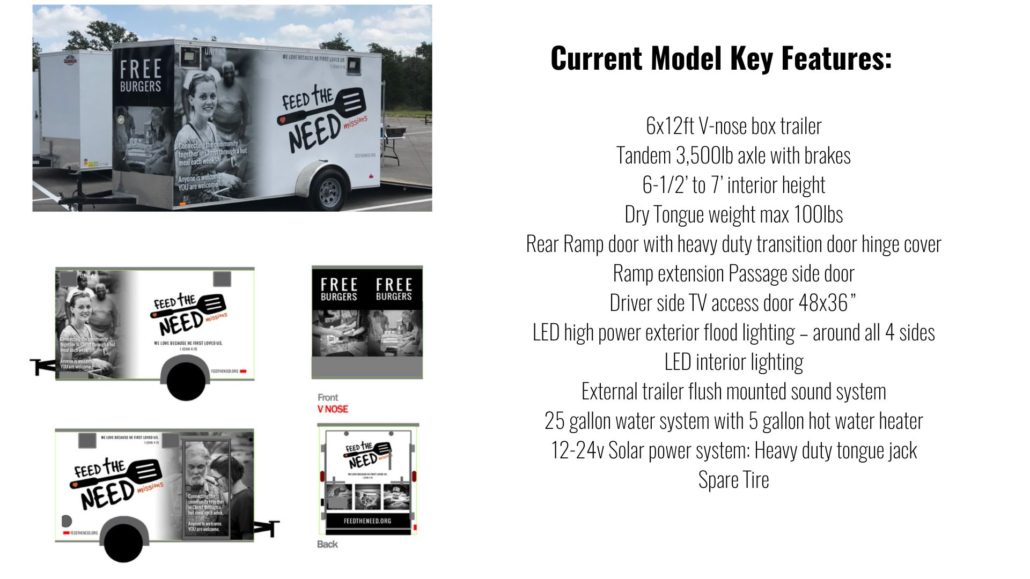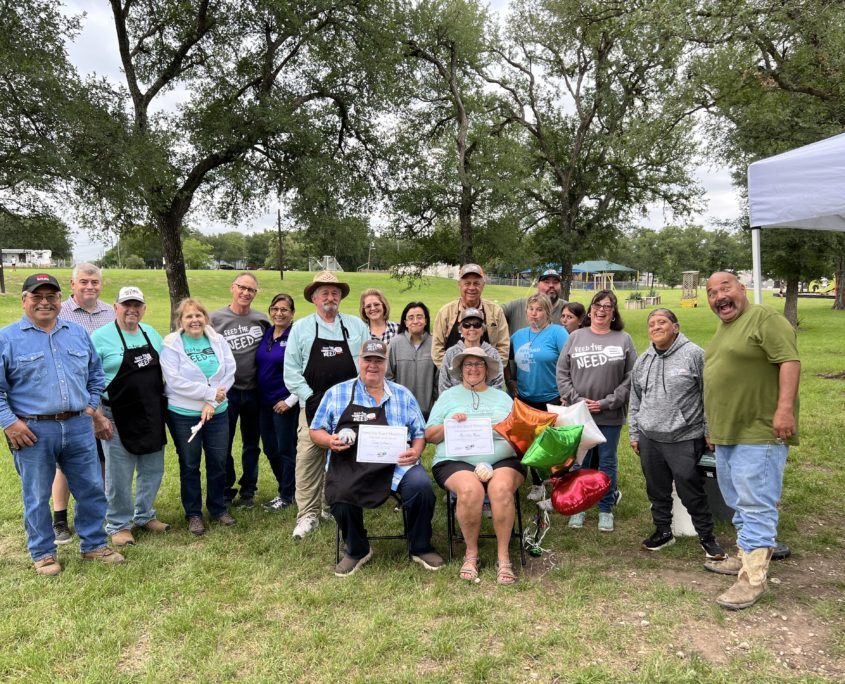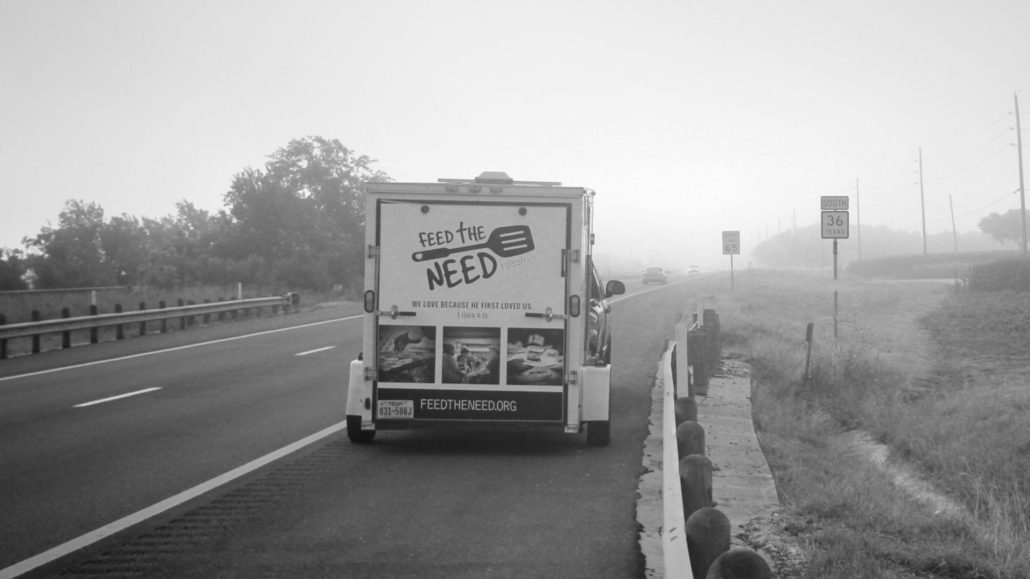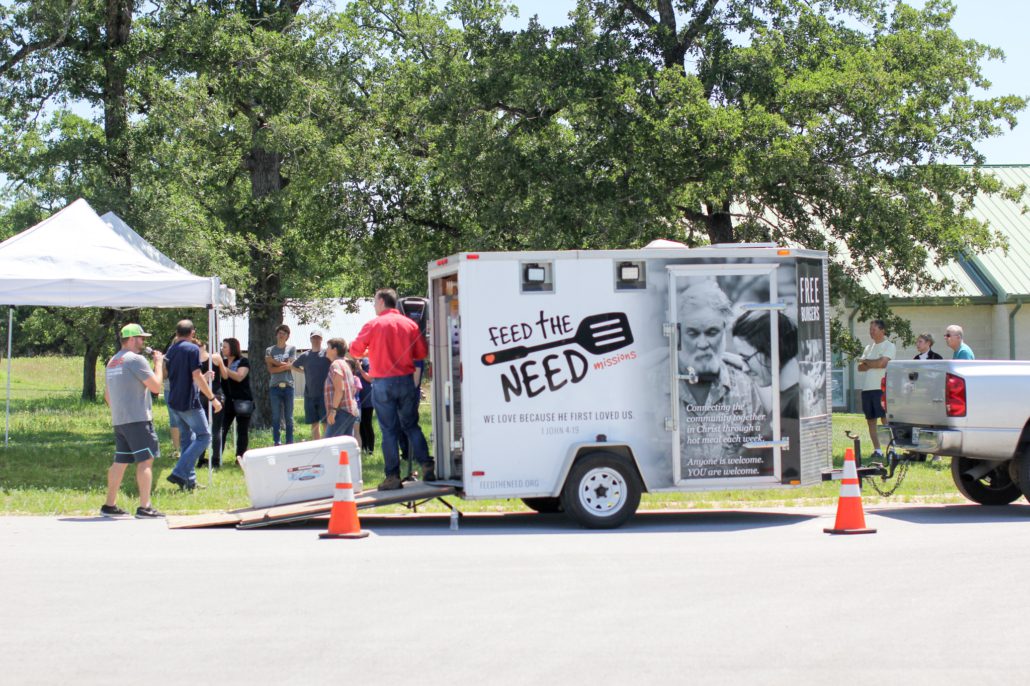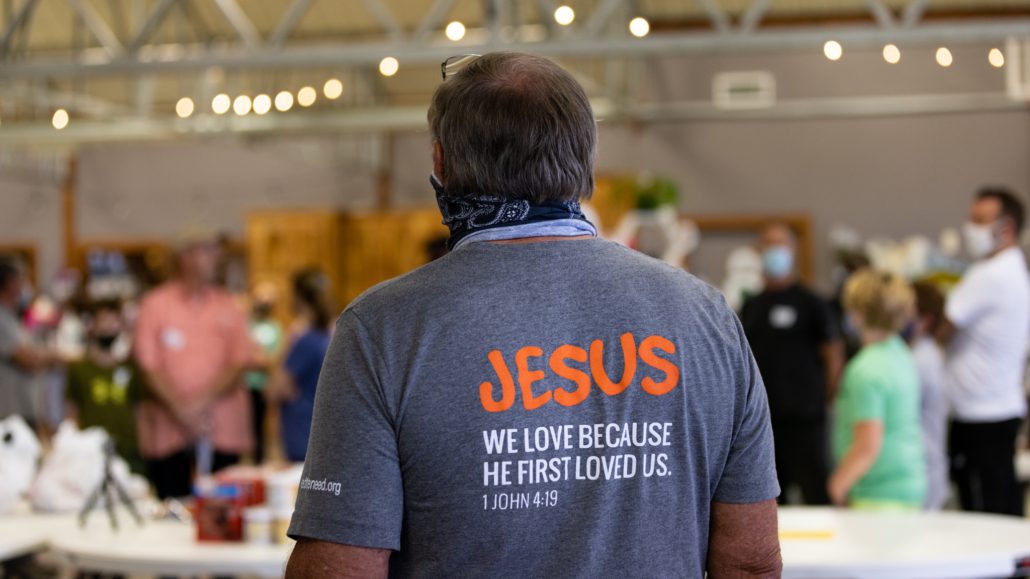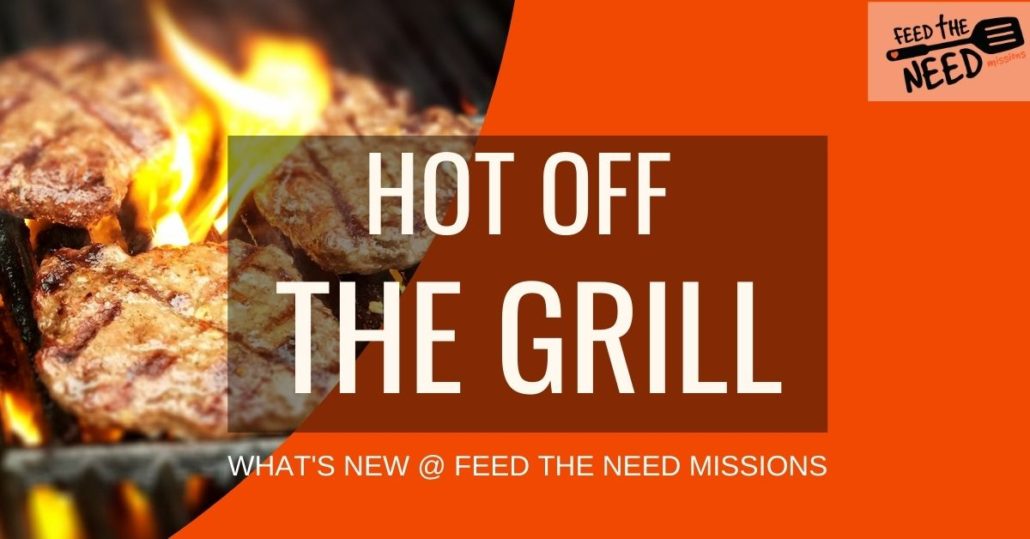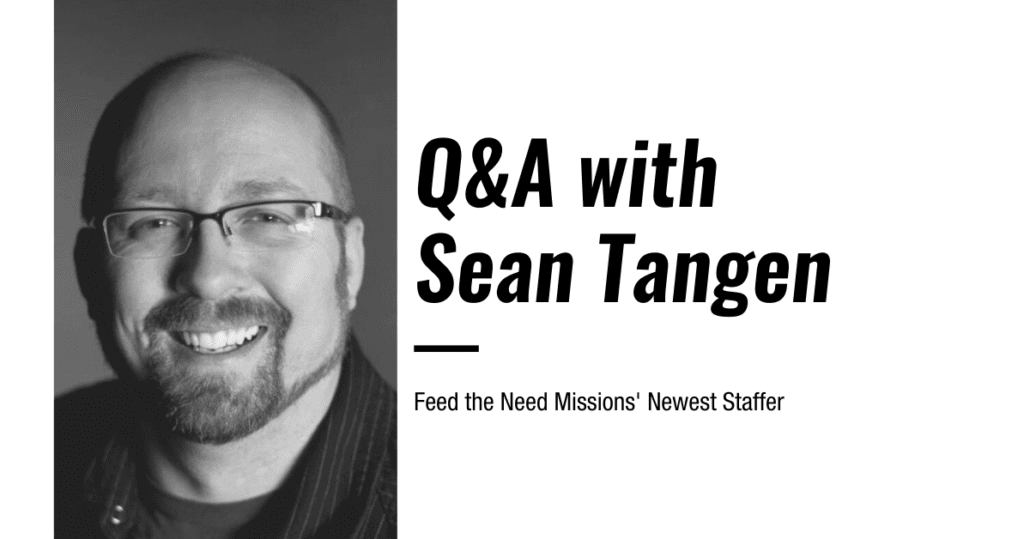Every week, beautiful, custom built trailers roll in to sites across Texas, fully equipped to feed communities physically and spiritually. These are the Feed the Need Missions trailers. But it hasn’t always been this way. We sat down with Jonah Beyer, president of Feed the Need Missions, to learn about the evolution of these incredible “mission mobiles.”
In the Beginning
Feed the Need Missions trailers are vital tools used to deliver supplies and support the work of feeding communities. But when Feed the Need Missions began operating, there was no trailer. “We started with volunteers showing up with personal grills. Chairs and tables were hauled over in pickup trucks and flatbed trailers,” Jonah shared. But over time, leadership realized this wasn’t a sustainable plan. “We needed a place to store supplies, so that they would last longer. We needed a mechanism for maintaining cleanliness. And carting things to the sites every week was very wearing on the volunteers.” So the team put their heads together to try to come up with a solution. And the idea for the trailer was born.
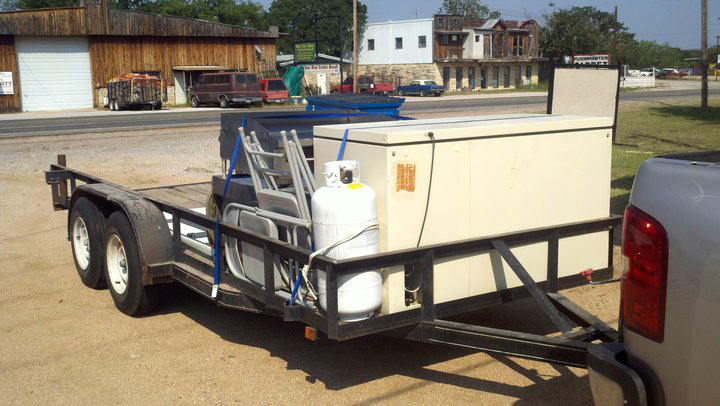
The Flatbed Prototype
Trailers seemed like a good place to start. “Volunteers brought small box trailers in the beginning,” Jonah said. “Unfortunately, people kept bumping they heads on them, because they are so short.” Realizing something more custom-made would be needed, they began to dream.
They started by assessing needs. The trailers would need to fit everything needed to run the site, including chairs, tables, a grill, serving and cooking utensils, cutting boards, tents, cleaning supplies paper towels, food, and drink coolers. “When we built the first trailer, it was just me and one volunteer. I was learning to weld at the time. So we grabbed a flatbed trailer and started to try to modify it.” They soon realized this was a daunting challenge to modify. “So, back to the drawing board, we decided to retrofit an enclosed box trailer.”
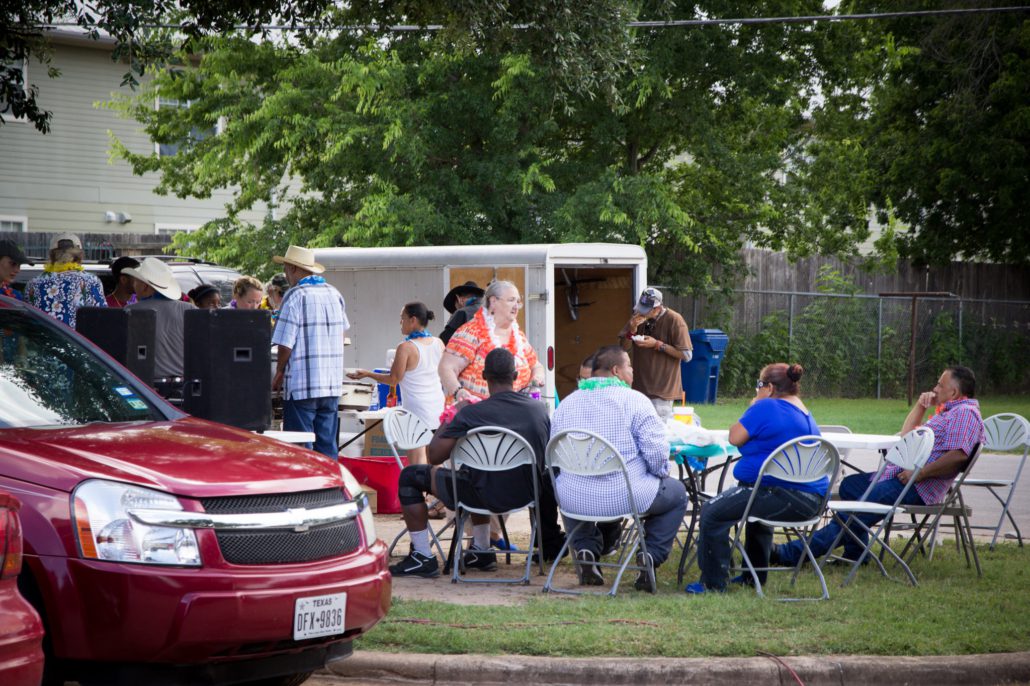
Unit A-1: The Modified Enclosed Box Trailer
“We had very specific criteria as we set out to modify the box trailer,” said Jonah. “We needed to keep it compact, so it was easy for a volunteer with a half ton pickup truck to tow. We wanted it to protect all of the supplies and maintain the durability of the supplies and equipment. It needed lighting because in the winter months it got dark early. It also needed a water supply because some sites didn’t have water. But it also had to be low maintenance.”
In 2015 Feed the Need Missions completed and launched Unit A-1. An enclosed 10′ box trailer, it was equipped with solar power, lighting, and a gravity-fed water system onboard. A spigot on the front of the trailer would provide opportunity to fill drink coolers and wash utensils and supplies.
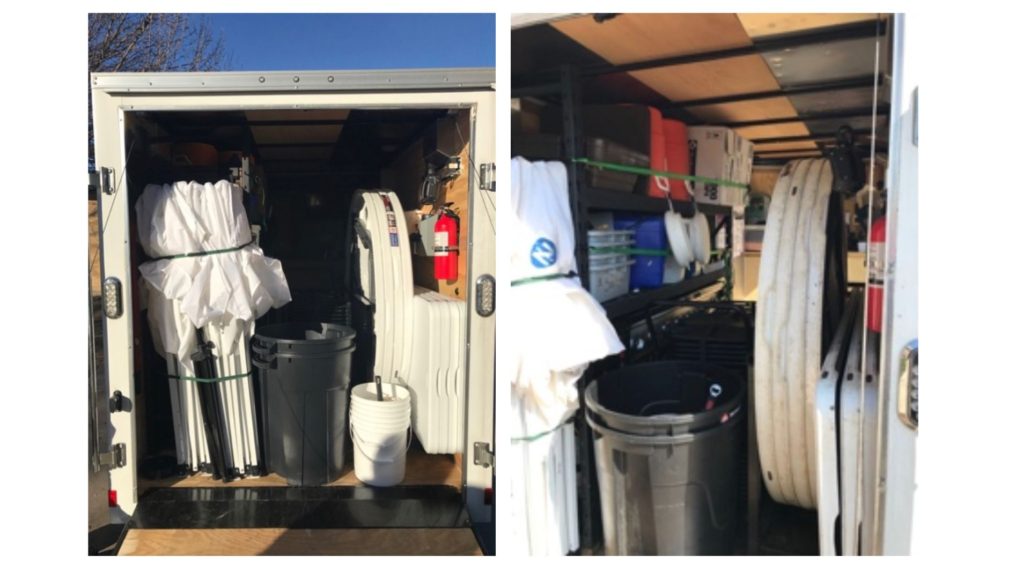
A-2: The Next Generation
“Once we put A-1 in the field, and did training, we realized that it was just too compact,” Jonah laughs. “The team kindof teased me because I packed everything in like a Tetris game, but it wasn’t simple for most volunteers to figure out how I had done it. It wasn’t easy to restock, the layout wasn’t user friendly—we realized we were going to need a little more space pretty quickly.”
So, two years later, Unit A-2, which was larger, was launched and dispatched to the north Texas sites in 2017. This time things were laid out and additions were made. It was completed just in time to dispatch it for Disaster Relief during Hurricane Harvey and helped us serve countless meals to those affected by the massive storm in Texas.
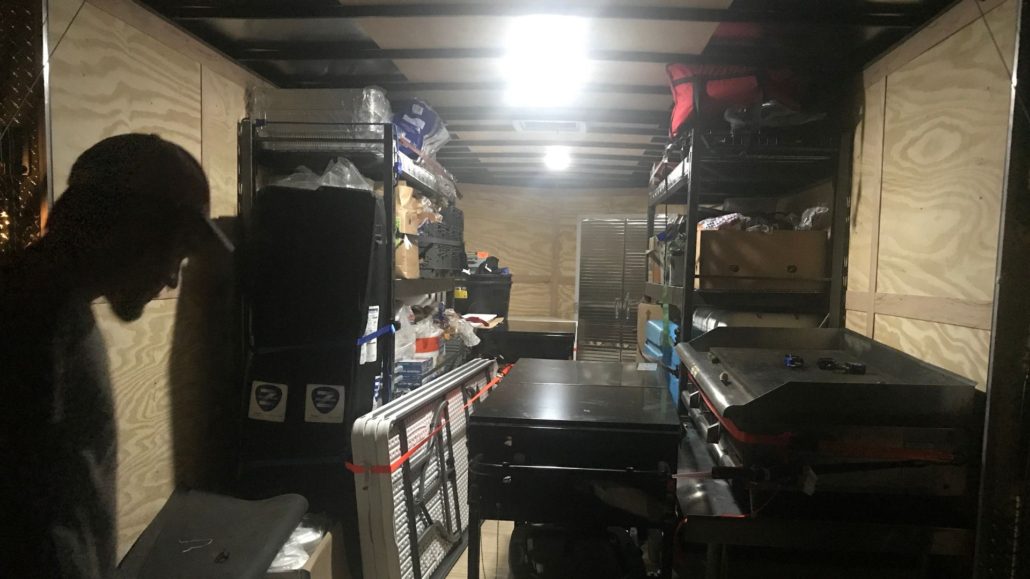
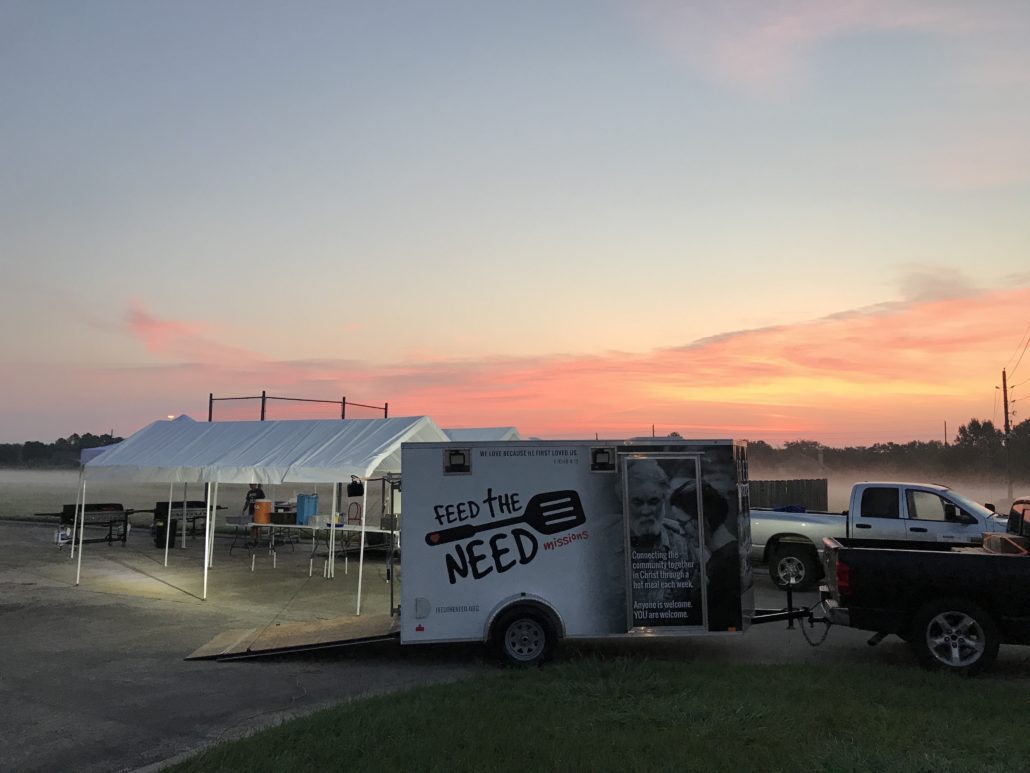
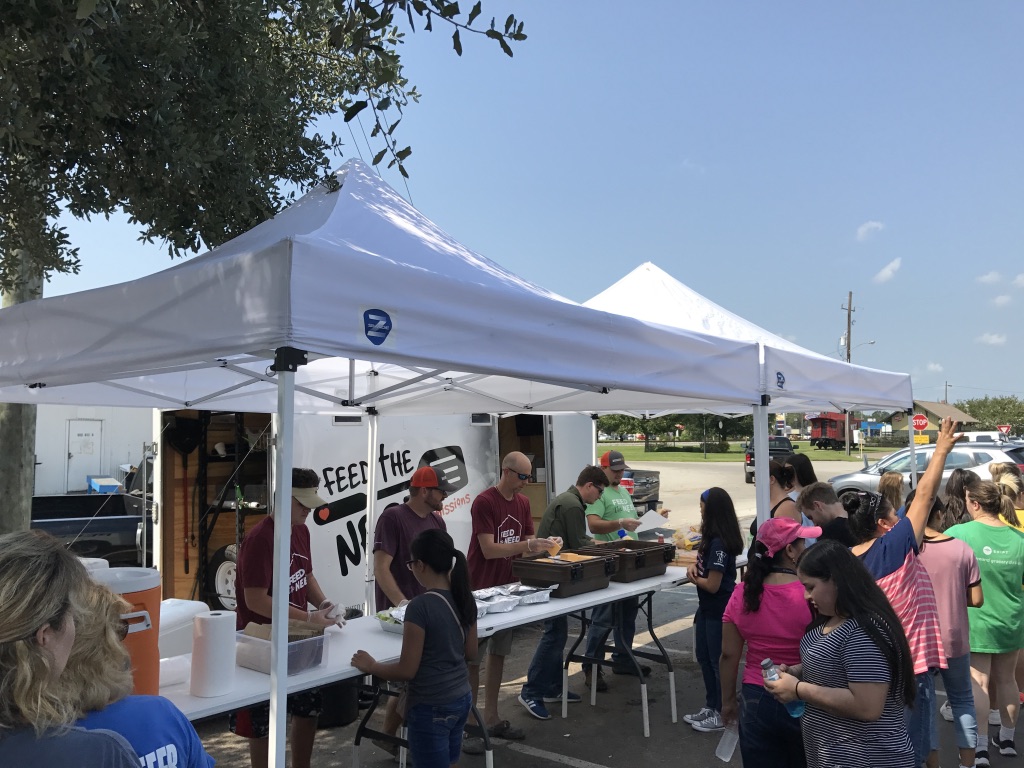
A-3: A Fully Equipped Mission Mobile
“The latest model of our Feed the Need Missions trailers was deployed just last week,” Jonah shared. Additional modifications have been made, including a solution to put hot water on board, which is helpful for north Texas especially, for winter season, and for cleaning.
“But one of the best modifications to these new trailers is that we have equipped them with AV,” Jonah said. “Years ago, my Grandad visited a site. I was sharing with him about Table Talk, our discipleship plan and he suggested that it would be helpful and beneficial to find a way to put a television on the side of the trailers to keep consistent messaging at all the sites. That conversation took place in 2013, and it’s reality now. On this new unit, there is a tv mounted in the side with a door that flips up and it has sound. It’s very exciting.” This AV equips volunteers to do effective and consistent ministry, to reach our guests with a clear presentation of the Gospel message.
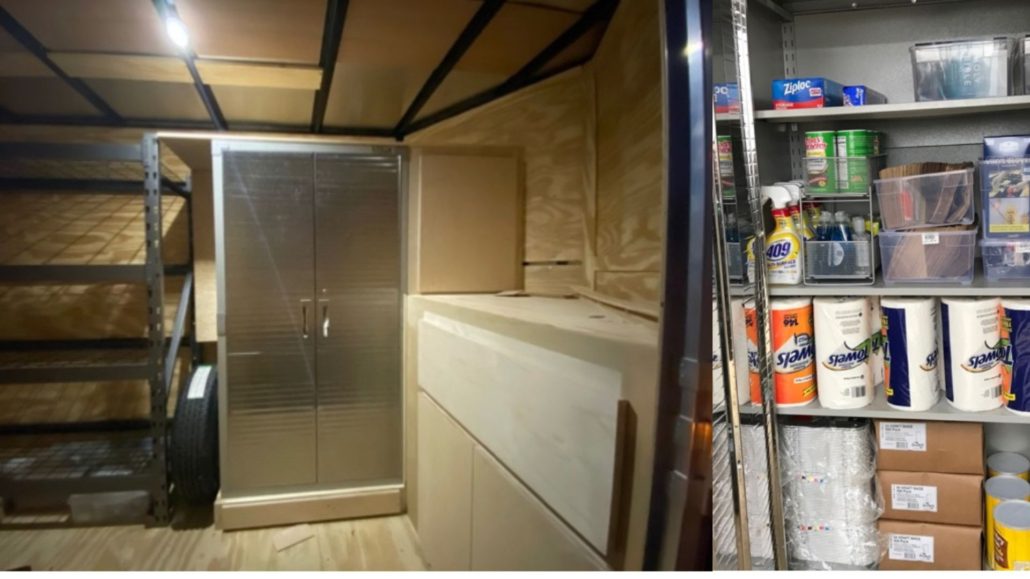
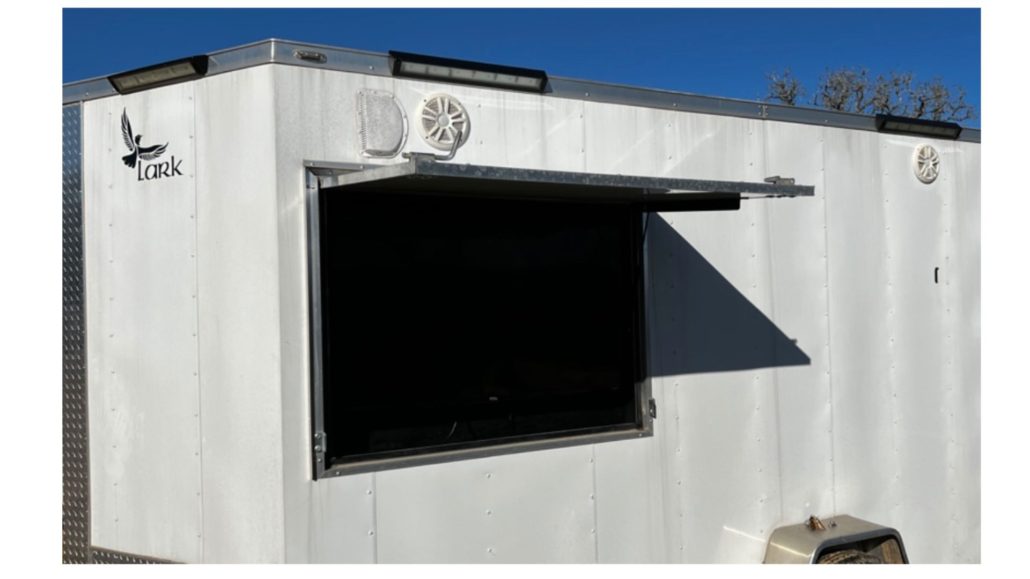
A-4: Built to Last
In production now is Unit A-4. While A-3 captures the functionality of what each site needs, the next generation of trailer will tackle durability. “We are looking at what hasn’t held up well over the years and what needs to be built to last longer,” shared Jonah. One of the ways they are doing that is by tapping in to creative partnerships.
“We contracted with a local company called Spiradrill to help us build out a more durable unit.” Spiradrill is a local company that is a big supporter of Feed the Need Missions. The partnership in the trailer building arose because sourcing challenges and product shortages made if difficult to find a cost effective way to costom build what was needed. “We purchase the basic box trailer, which is easy to acquire, and Spiradrill is doing the upgrades like cabinetry and equipment installation. The labor is donated, and in return they get a beneficial visibility to the community.
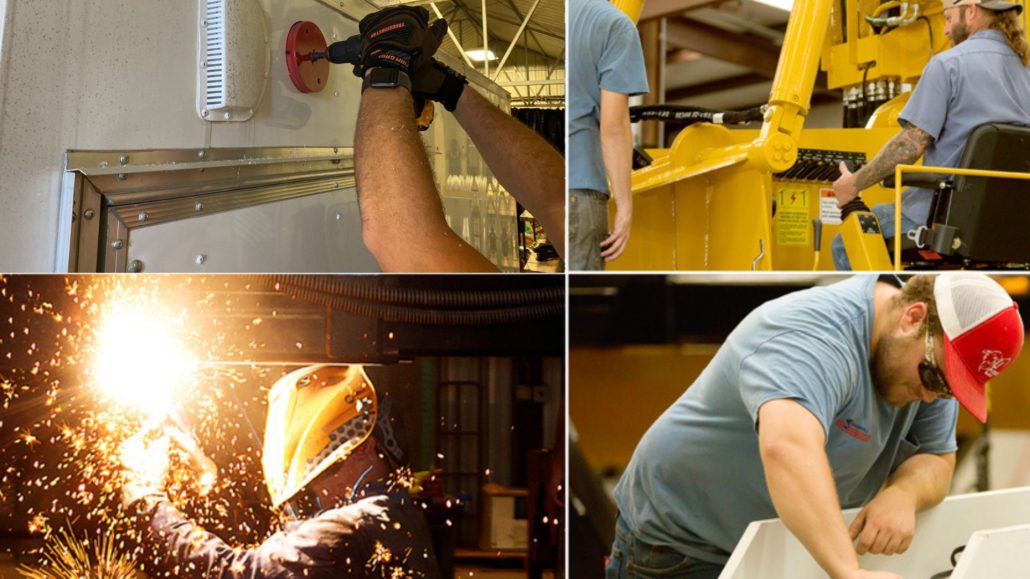
The Current Model
Our weekly site trailers are designed to support 3 sites within an area. They are a self contained unit equipped with a grill, tables/chairs, freshwater, dish-washing station, water heater, lighting, solar power, all equipment to run a site, and supplies it has everything needed to be self-sufficient and convenient. Each trailer should be able to support 3 sites for a month (12 events). It is branded to help promote and spread the word about the mission. Contact us for more information about Feed the Need Missions or partnerships.
